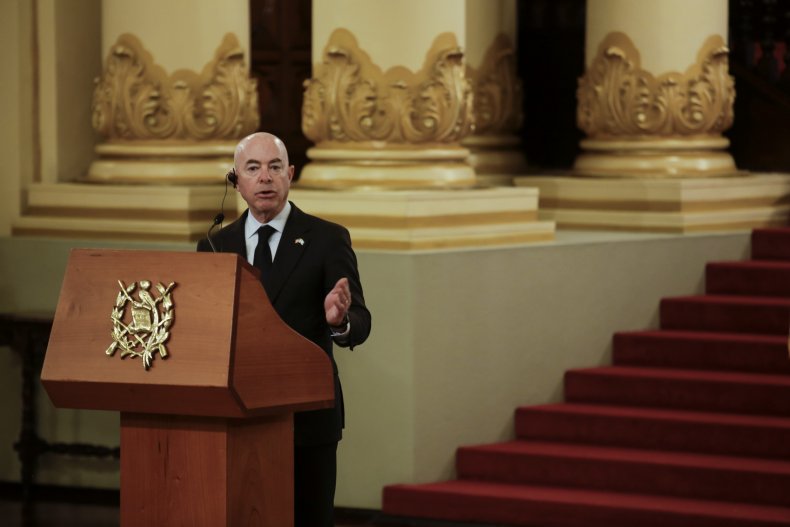'Domestic Extremism' Is Greatest Terror Threat Facing US, Says DHS Secretary Mayorkas
Department of Homeland Security (DHS) Alejandro Mayorkas said Monday the most significant terror threat the United States faces currently is from within the nation's own borders.
Mayorkas, who appeared on MSNBC's Andrea Mitchell Reports, on Monday was asked by Mitchell if "as a result of the January 6 attack" his department was doing enough to identify extremists domestically.
"We are very focused on this, this is one of our highest priorities," Mayorkas answered. "Domestic violent extremism is the greatest terrorist-related threat we face on the homeland."
Mayorkas went on to identify DHS's creation of the Center for Prevention Programs and Partnership (CP3) as a major step in fighting domestic terrorism, citing more than $77 billion in grant funding given over to "address this really great threat."
Mayorkas took aim at some of the domestic terror groups Mitchell brought up in the interview, including QAnon and the Proud Boys.
"I think there's one thing, a very important thing, that the American public should know—that these are not really well-organized groups that are hierarchical in nature as one might think of a terrorist organization in the foreign terrorist traditional sense," Mayorkas said.
"These are often loosely affiliated, individuals or sole actors, really motivated by false narratives and ideologies of hate and the like. And that's what makes it challenging as well for law enforcement."
Mayorkas' explanation of "disarray" and a lack of centralized organization seemed to connect to his explanation for questions from Mitchell as to why there weren't warnings given to the public by DHS surrounding the January 6 attacks, given the abundance of chatter on social media.
"This is one of the issues that is under review," Mayorkas responded, and explained his department is studying where the government "could have done more."
"We are building an infrastructure to better equip ourselves to disseminate information," the DHS secretary said. "We have started to issue bulletins and information alerts to state, local, territorial, markers, we're working in partnership with law enforcement, with the Bureau of Investigation, with other federal and state authorities to get that information out."
He also explained that grants connected to DHS's CP3 project are allocated for equipping and empowering local communities with intelligence information about domestic threats.

According to CP3's website, CP3 "seeks a resilient America where localities are united to help end targeted violence and terrorism. On May 11, Mayorkas replaced the Office for Targeted Violence and Terrorism Prevention with CP3 to ensure DHS's efforts are grounded in an approach to violence prevention that leverages behavioral threat assessment and management tools, and addresses early-risk factors that can lead to radicalization to violence."
Newsweek reached out to DHS for comment.

